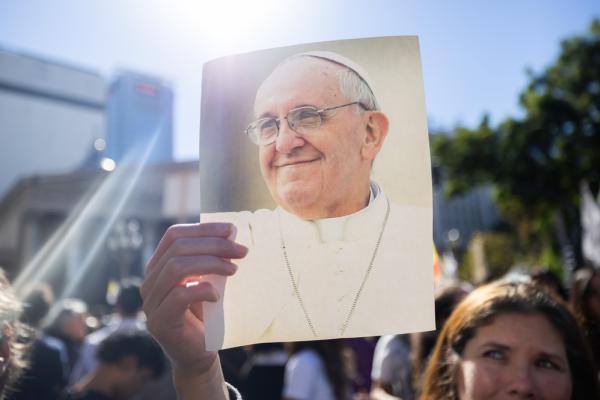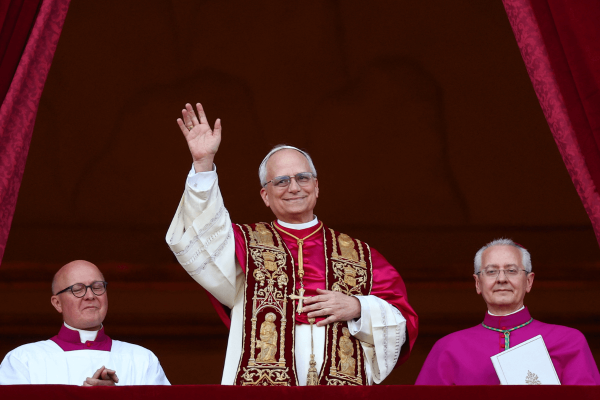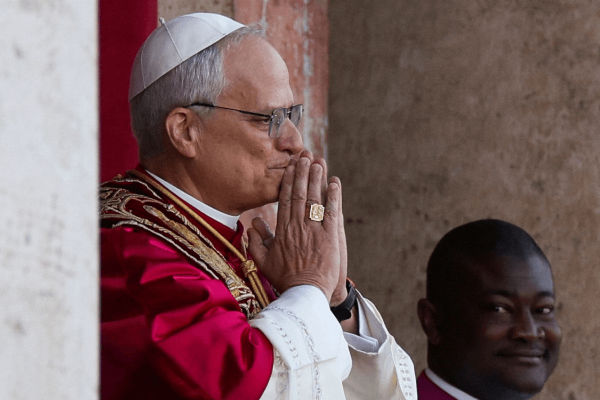Christianity is wonderful because Christ is wonderful. But Christianity’s goodness is completely dependent on Christ, and it’s only as good as its ability to reflect Jesus. The less it looks like Christ, the less good it is. Contrarily, perceptions of Christ can be similarly dependent on “Christianity” and its ability — or inability — to “represent” Christ. Unfortunately, when the Christian religion fails at this, the love of Christ can be manipulated into something else entirely.
The central beliefs of Christianity revolve around Jesus being God incarnate, dying for people’s sins, and being the savior of the world. His life and words provide a blueprint for us to follow. The powerful example of Jesus’ love, grace, mercy, forgiveness, kindness, justice, and empowerment make Christianity attractive. But Christendom — the people, churches, institutions, and organizations — that construct the majority culture of the Christian religion, can manipulate this good news into something else entirely.
I became a Christian because of Jesus, but over the years this faith in the person of Christ has become increasingly contradictory to the beliefs and actions of the religion that claims his namesake.
In Matthew 5:44 Jesus says to “love your enemies and pray for those who persecute you.” But the simple message of “thou shall not kill” has slowly become a mantra that now seemingly only applies to unborn babies. Because large segments of Christians currently support endless militarization and wars they can’t explain the meaning of. Things like the death penalty, gun violence, and torture also became sanctioned under Christendom, so much so that supporting capital punishment, gun rights, and state-sponsored torture are a pseudo declaration of conservative “Christianity.”
Jesus also said that to “‘Love your neighbor as yourself” (Matt. 22: 39) is one of the greatest commandments. But “Christianity” can devolve into an us versus them mentality, where Muslims, LGBTQ individuals, immigrants, and those who don’t share our same theological, political, or social ideologies can be treated lesser—even mistreated, oppressed, and sometimes killed. Over time, Jesus’ famous instruction to “Do to others as you would have them do to you (Luke 6:31)” became increasingly discriminatory, and religion’s tendency for exclusion transforms the gospel of Jesus into a legalistic set of rules and expectations, where grace is supplanted with judgement, and inspiration is replaced with fear.
Immigrants and refugees are rejected, individuals are deported, families are ripped apart, Muslims vilified — and their countries bombed, women assaulted, people of color attacked, and society filled with systemic oppression, all while Christendom works to hoard wealth, political influence, and power. It disguises such evil as being “spirituality” and covers its tracks by misusing scripture and selectively adapting doctrines to accommodate selfish desires. While the love of Christ benefits others, the machinations of Christendom benefits only itself.
Instead of seeing everyone through the eyes of Christ, and valuing them based on their divine worth — literally made in the image of God and passionately loved by God — Christendom dehumanizes, categorically denying worth based on political, cultural, social, spiritual, and even physical differences. Through this method, “Christianity” legitimizes its oppression of others, and the pain and suffering of people can be subjectively disregarded—even sanctioned — by Christians who offer themselves numerous spiritual excuses to circumvent the ways of Jesus. “God’s sovereignty,” “sin,” and other religious jargon is used to offer unlimited escape clauses to avoid following Christ.
Jesus proclaimed to “sell your possessions and give to the poor. Provide purses for yourselves that will not wear out, a treasure in heaven that will never fail, where no thief comes near and no moth destroys. For where your treasure is, there your heart will be also. (Luke 12:33-34)” But money has now become the driving force of modern Christendom, where economic strength, financial markets, and personal wealth are used as idolatrous indicators of God’s favor. Leaders are no longer gauged by moral or spiritual standards, the fruits of the Spirit, or how well they exude Christ’s love, but are praised and criticized according to how well they help us become richer and more comfortable. In this way, the Church has excused racism, xenophobia, bigotry, and hate for the sake of profits and growth, preferring to maintain its own privilege rather than sacrificially serve others.
Besides loving your neighbor, Jesus is notable for proclaiming that the greatest commandment of all is to “Love the Lord your God with all your heart and with all your soul and with all your mind. (Matt. 22:37).” We’re told to love God above all else, not denominations, theologians, a country, or a political party. Jesus goes on to say that “I and the Father are one. (John 10:30)” and “I am the way and the truth and the life. No one comes to the Father except through me (John 14:6).”
Anything can label itself as being “Christian,” so we must always look to the person of Christ to guide us, because he already laid out a life for us that perfectly reflects what it means to be God incarnate on earth. Christ is everything.
Christianity is represented by imperfect Christians trying to represent a perfect Christ. This explains why everything bad about Christianity can be traced back to Christians, but everything good can be traced back to Christ. So it’s time we stop glorifying Christendom, and start following God instead. May we love God and love others to the best of our ability, even if it means giving up our old trappings of “Christianity.”
Got something to say about what you're reading? We value your feedback!







